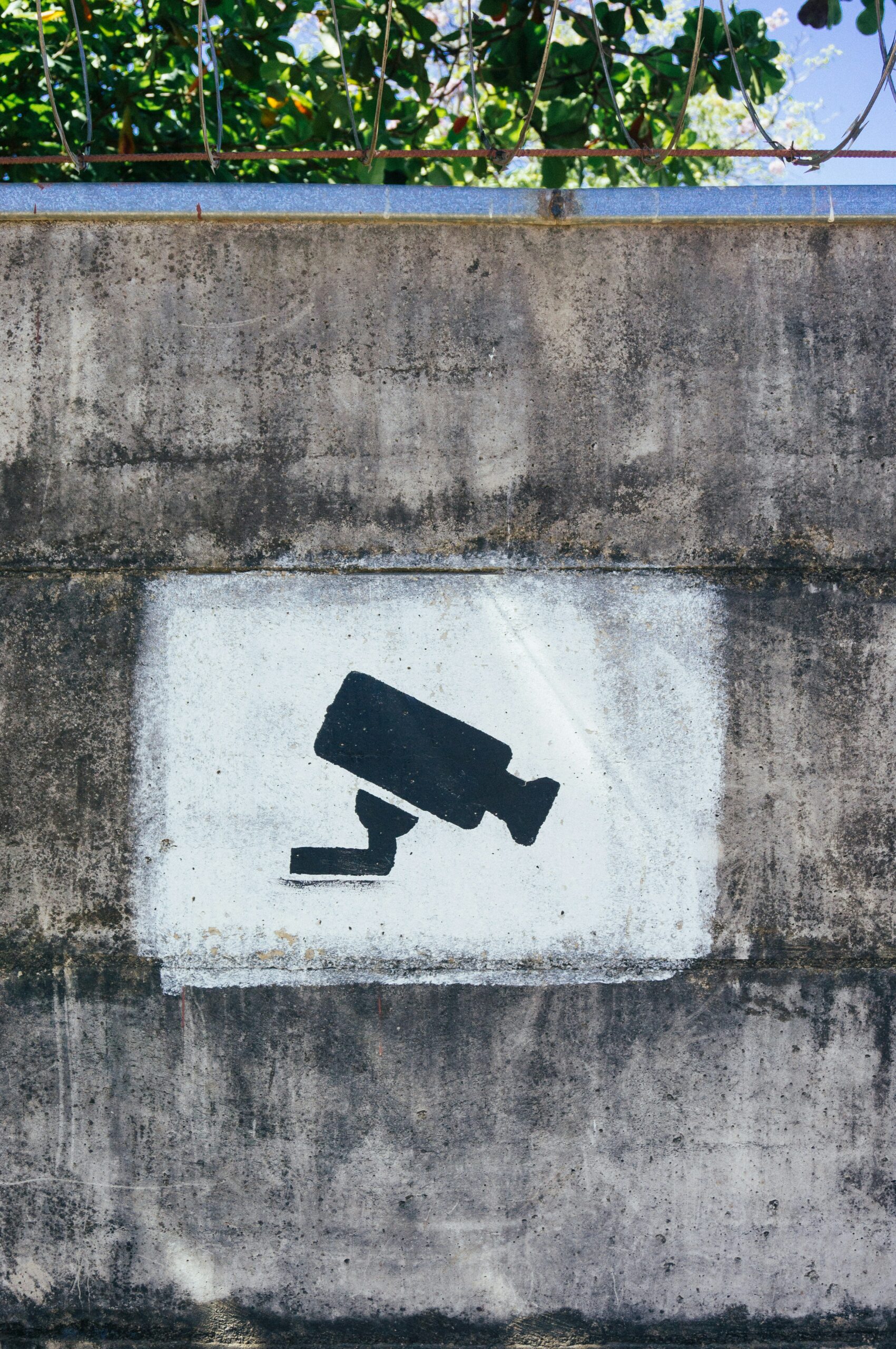Private investigation in Thailand is a growing field, providing crucial services in various sectors, including corporate, legal, personal, and insurance. Whether uncovering fraudulent activities, locating missing persons, or conducting background checks, private investigators in Thailand operate within a legal framework that governs their activities and ensures their compliance with ethical standards. This article delves into the intricacies of private investigation in Thailand, exploring the legal framework, types of services offered, ethical considerations, challenges faced by investigators, and the implications for clients seeking these services.
Legal Framework Governing Private Investigation in Thailand
Private investigation in Thailand is not as heavily regulated as in some other countries, but investigators must still operate within the bounds of Thai law. While there is no specific legislation exclusively governing private investigators, their activities are subject to various laws, including the Thai Penal Code, the Civil and Commercial Code, and specific statutes such as the Personal Data Protection Act B.E. 2562 (2019) (PDPA).
1. Thai Penal Code
The Thai Penal Code is central to the legal framework within which private investigators must operate. It outlines criminal offenses and penalties, some of which are particularly relevant to private investigation.
Relevant Sections:
- Defamation (Sections 326-333): Private investigators must avoid actions that could be construed as defamation, including the dissemination of false or misleading information about an individual.
- Trespassing (Section 362): Entering private property without permission is a criminal offense. Investigators must obtain lawful consent before conducting surveillance or gathering evidence on private premises.
- Invasion of Privacy (Section 420): Engaging in activities that intrude upon an individual’s privacy without their consent, such as unauthorized surveillance or recording, can lead to criminal charges.
2. Civil and Commercial Code
The Civil and Commercial Code governs civil matters in Thailand, including contracts, torts, and property rights. Private investigators often operate under contracts, and their actions may give rise to civil liability if they breach these contracts or engage in tortious conduct.
Key Provisions:
- Contractual Obligations: Investigators must adhere to the terms of their contracts with clients, ensuring that they fulfill their duties without exceeding the scope of their authority.
- Tort Law (Section 420): Investigators may be held liable for damages if their actions cause harm to another party, such as through unlawful surveillance or harassment.
3. Personal Data Protection Act B.E. 2562 (2019)
The PDPA, which came into effect in June 2022, regulates the collection, use, and disclosure of personal data in Thailand. This law is particularly relevant to private investigators who handle sensitive information.
Key Requirements:
- Lawful Basis for Data Collection: Investigators must have a legitimate reason for collecting personal data, such as consent from the data subject or a legal obligation.
- Data Subject Rights: Individuals have the right to access, correct, or request the deletion of their personal data. Investigators must respect these rights and ensure that data is handled securely.
- Penalties for Non-Compliance: Violations of the PDPA can result in significant fines and penalties, as well as civil liability for damages caused by data breaches.
Types of Private Investigation Services in Thailand
Private investigators in Thailand offer a wide range of services, catering to different needs across various sectors. These services can be broadly categorized into corporate investigations, legal support, personal investigations, and insurance investigations.
1. Corporate Investigations
Corporate investigations are a major area of private investigation in Thailand, often focusing on fraud prevention, due diligence, and internal company issues.
Common Services:
- Due Diligence: Investigators conduct thorough background checks on potential business partners, employees, or investment opportunities to identify risks and ensure compliance with legal and regulatory standards.
- Fraud Investigations: Investigators help companies uncover and address fraudulent activities, such as embezzlement, financial statement fraud, and intellectual property theft.
- Employee Misconduct: Investigators may be hired to monitor or investigate employee behavior, such as absenteeism, substance abuse, or breaches of confidentiality.
Case Example:
- Intellectual Property Theft: A Thai company suspects that a former employee has stolen proprietary information to start a competing business. A private investigator is hired to gather evidence of the theft, including digital forensics and surveillance, which is then used in legal proceedings.
2. Legal Support Investigations
Private investigators often work closely with law firms to provide support in legal cases, such as gathering evidence, locating witnesses, and conducting asset searches.
Common Services:
- Background Checks: Investigators conduct background checks on parties involved in litigation to uncover relevant information that may impact the case, such as prior criminal records or financial history.
- Surveillance: Surveillance is used to gather evidence of activities relevant to legal cases, such as suspected infidelity in divorce proceedings or violations of restraining orders.
- Witness Location and Interviewing: Investigators help locate and interview witnesses who may be difficult to find, ensuring that their testimony is available for court proceedings.
Case Example:
- Divorce and Child Custody: In a contentious divorce case, a private investigator is hired to document the activities of one parent, providing evidence that supports the other parent’s claim for custody based on the best interests of the child.
3. Personal Investigations
Personal investigations typically involve cases where individuals seek to protect their personal interests, such as in matters of infidelity, missing persons, or child custody disputes.
Common Services:
- Infidelity Investigations: Investigators gather evidence of a spouse’s extramarital activities, often through surveillance, to support claims in divorce proceedings.
- Missing Persons: Investigators locate missing persons, such as runaway children, estranged family members, or individuals who have disappeared under suspicious circumstances.
- Child Custody: Investigators collect evidence to support claims in child custody disputes, often focusing on the behavior and lifestyle of one parent.
Case Example:
- Missing Person: A foreign national residing in Thailand loses contact with a family member who was last known to be in Bangkok. A private investigator is hired to trace the missing person’s movements, contact local authorities, and eventually locate the individual.
4. Insurance Investigations
Insurance companies frequently hire private investigators to verify claims and detect fraud. These investigations are crucial for maintaining the integrity of the insurance industry.
Common Services:
- Claim Verification: Investigators verify the details of insurance claims, such as those related to accidents, injuries, or property damage, to ensure they are legitimate.
- Fraud Detection: Investigators identify fraudulent claims, such as staged accidents, exaggerated injuries, or false property loss, and gather evidence to deny the claim.
- Surveillance: Surveillance is often used in workers’ compensation cases to monitor claimants and determine whether they are genuinely injured or exaggerating their conditions.
Case Example:
- Insurance Fraud: An insurance company suspects that a claimant is exaggerating the extent of their injuries to receive higher compensation. A private investigator conducts surveillance and uncovers evidence that the claimant is engaging in physical activities inconsistent with their reported injuries.
Ethical Considerations in Private Investigation
Private investigators in Thailand must navigate a range of ethical considerations to ensure that their activities are both lawful and morally sound. These considerations are crucial for maintaining professionalism and protecting the rights of individuals involved in investigations.
1. Confidentiality and Data Protection
Maintaining the confidentiality of client information and the data collected during investigations is paramount. Investigators must implement strict data protection measures in compliance with the PDPA and other relevant laws.
Best Practices:
- Secure Data Storage: Investigators should use secure methods for storing sensitive information, such as encrypted digital storage or locked physical files.
- Non-Disclosure Agreements: Clients and investigators should enter into non-disclosure agreements (NDAs) to protect sensitive information from being shared without authorization.
2. Avoiding Conflicts of Interest
Investigators must avoid situations where conflicts of interest could arise, such as taking on cases that involve conflicting parties or working on cases that could compromise their objectivity.
Best Practices:
- Full Disclosure: Investigators should fully disclose any potential conflicts of interest to their clients and recuse themselves from cases where impartiality could be compromised.
- Ethical Decision-Making: Investigators should prioritize ethical decision-making, even if it means turning down lucrative assignments that could lead to conflicts of interest.
3. Respecting Legal and Human Rights
Private investigators must respect the legal rights and human rights of all individuals involved in their investigations. This includes avoiding unlawful surveillance, harassment, or intimidation.
Best Practices:
- Lawful Conduct: Investigators should ensure that all activities are conducted within the bounds of Thai law, seeking legal advice when necessary.
- Human Dignity: Investigators should treat all individuals with respect, avoiding actions that could infringe on their dignity or cause unnecessary harm.
Challenges Faced by Private Investigators in Thailand
Private investigators in Thailand face several challenges that can impact the effectiveness and success of their work. These challenges often require investigators to employ creative solutions and adapt to changing circumstances.
1. Legal and Regulatory Ambiguities
The lack of specific regulations governing private investigation in Thailand can create ambiguities, particularly regarding what activities are permissible and what constitutes unlawful conduct.
Implications:
- Legal Risks: Investigators may inadvertently engage in activities that are legally questionable, leading to potential legal consequences.
- Navigating Gray Areas: Investigators must be adept at navigating legal gray areas, often relying on their experience and legal advice to make informed decisions.
2. Cultural and Language Barriers
Cultural and language differences can pose significant challenges, particularly for foreign investigators or clients unfamiliar with Thai customs and norms.
Implications:
- Miscommunication: Misunderstandings due to language barriers can lead to miscommunication, errors in reporting, or difficulties in interacting with local authorities.
- Cultural Sensitivity: Investigators must be culturally sensitive, adapting their methods to align with Thai social norms and legal expectations.
3. Technological Challenges
The rapid advancement of technology presents both opportunities and challenges for private investigators, particularly in the areas of digital forensics and cyber investigations.
Implications:
- Keeping Up with Technology: Investigators must stay updated on the latest technological tools and techniques, which requires ongoing training and investment.
- Cybersecurity Risks: As investigators increasingly handle digital data, they must be vigilant about cybersecurity risks, including data breaches and cyberattacks.
Implications for Clients Seeking Private Investigation Services
Clients seeking private investigation services in Thailand must carefully consider several factors to ensure they receive professional, ethical, and effective services.
1. Selecting a Reputable Investigator
Choosing a reputable and experienced investigator is crucial for ensuring that the investigation is conducted professionally and within the bounds of the law.
Considerations:
- Credentials and Experience: Clients should verify the investigator’s credentials, including their experience, expertise in relevant areas, and track record of successful cases.
- References and Reviews: Clients can seek references from previous clients or review online testimonials to gauge the investigator’s reputation.
2. Understanding Legal and Ethical Boundaries
Clients must understand the legal and ethical boundaries within which investigators operate. This knowledge helps clients set realistic expectations and ensures that they do not inadvertently request unlawful or unethical services.
Considerations:
- Legal Compliance: Clients should discuss the legal aspects of the investigation with the investigator, including what actions are permissible and what could result in legal consequences.
- Ethical Standards: Clients should ensure that the investigator adheres to ethical standards, including respecting privacy, avoiding conflicts of interest, and maintaining confidentiality.
3. Managing Costs and Expectations
Private investigation services can vary in cost depending on the complexity and duration of the case. Clients should have a clear understanding of the costs involved and set realistic expectations for the investigation’s outcomes.
Considerations:
- Cost Estimates: Clients should request a detailed cost estimate before the investigation begins, including fees for specific services and any potential additional costs.
- Outcome Expectations: Clients should discuss their expectations with the investigator, including the potential outcomes, limitations of the investigation, and the likelihood of success.
Conclusion
Private investigation in Thailand is a complex and evolving field that plays a crucial role in supporting corporate, legal, personal, and insurance-related inquiries. Investigators must navigate a challenging landscape of legal, ethical, and practical considerations to deliver effective and reliable services.
For clients seeking private investigation services, understanding the legal framework, ethical standards, and challenges faced by investigators is essential for making informed decisions and ensuring that the investigation meets their needs. By selecting reputable investigators, respecting legal boundaries, and managing expectations, clients can achieve successful outcomes while upholding the highest standards of professionalism and integrity in the investigative process.


